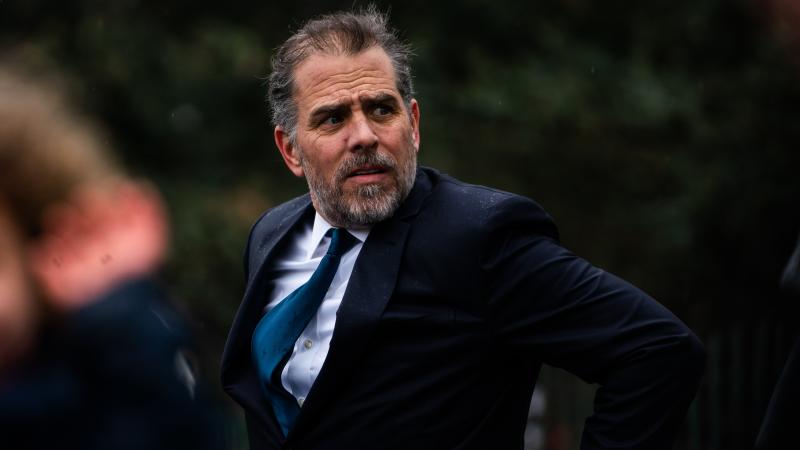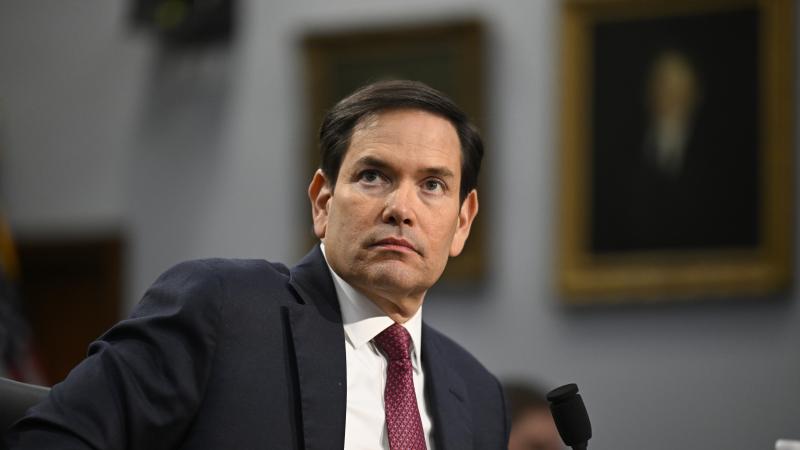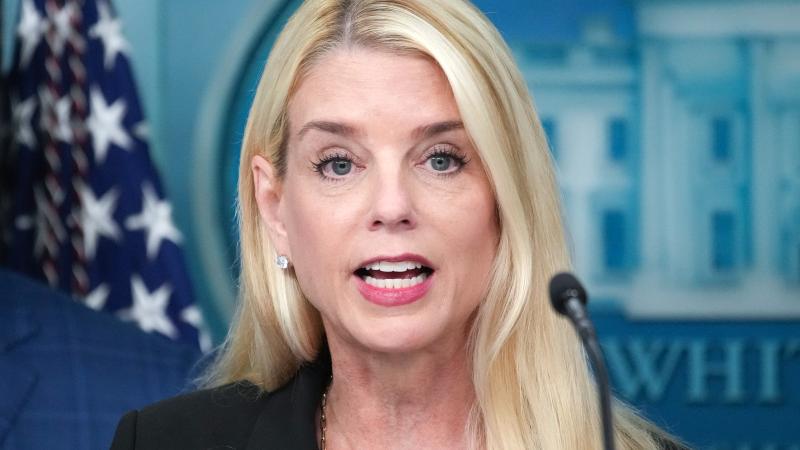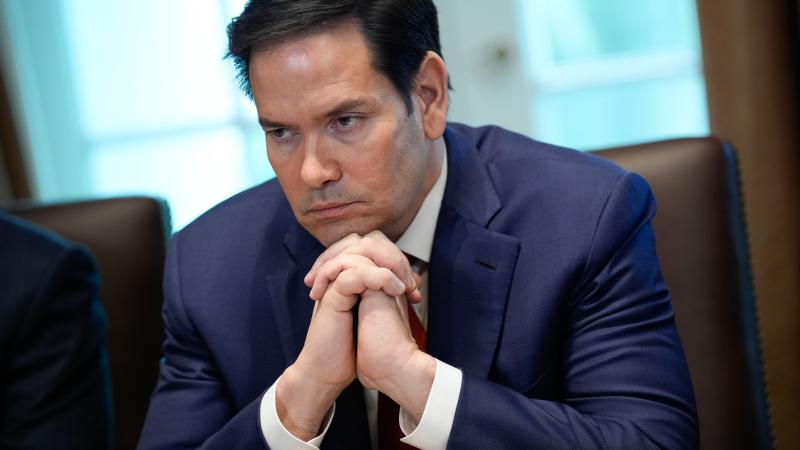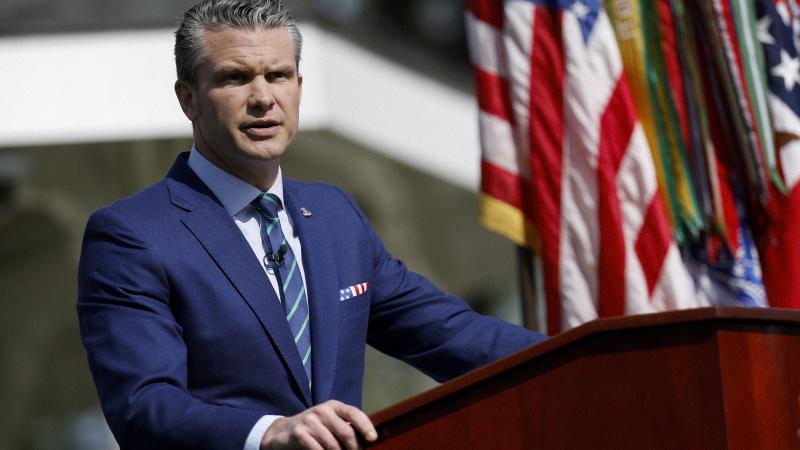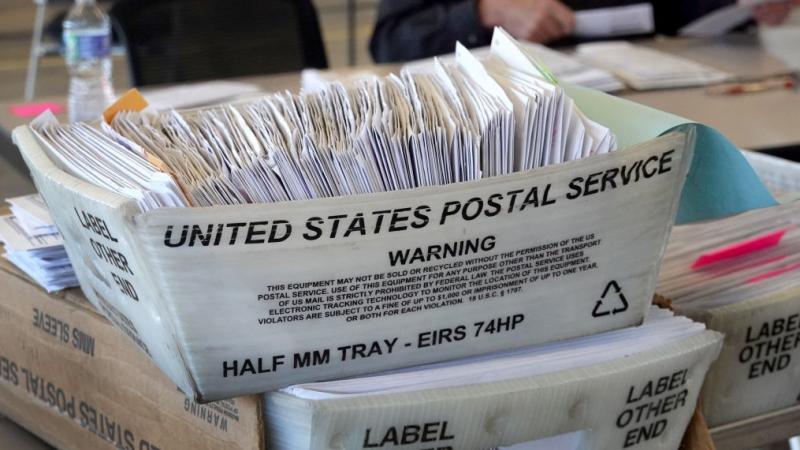FBI's politicized 2017 shooting investigation only one of many distorted high-profile inquiries
A brutal takedown this week of the FBI's botched inquiry into the June 2017 shooting at a GOP congressional baseball game was another straw on the camel's back. This year has seen multiple FBI and intel community investigations further exposed as flawed and politicized. Accountability is yet to be adjudged.
A new House Intelligence Committee report detailing the politicization of the FBI’s flawed investigation into the 2017 shooting at a GOP congressional baseball practice is just the latest revelation this year showing the mishandling of high-profile investigations by the FBI and intelligence community (IC).
The GOP-led intelligence panel contended this week that the FBI “misled the public” for years in claiming a left-wing Bernie Sanders supporter's attempt to target and gun down Republican congressmen in June 2017 was non-political "suicide by cop.” It was disclosed this week that it was in fact a genuine moment of domestic terrorism — with the GOP majority on the House committee arguing the bureau had been motivated by a “political purpose” for misleading the public.
The documents that House Republicans are citing were handed over to them by FBI Director Kash Patel.
It is just the latest high-profile investigation into which key new details of missteps or politicization have been revealed this year. New evidence has also emerged about the mishandling of the FBI’s Crossfire Hurricane investigation into false claims of Trump-Russia collusion, the inadequate search for COVID-19’s origins, the stunted Hunter Biden inquiry, and the still unknown yet mysterious ailments impacting U.S. government personnel known as “Havana Syndrome” or anomalous health incidents (AHIs).
“From Russian collusion to Anomalous Health Incidents, political considerations appear to have been the primary factor in analyzing facts for end-use intelligence products. This high-profile case is no different,” the GOP-led intelligence panel found in its new report on the 2017 baseball practice shooting. “Whatever its political purpose, the FBI’s starting position was that the shooter was suicidal, hoping to die by gunfire with police. It appears to the Committee that investigative efforts and intelligence analysis then attempted to reinforce the ‘suicide by cop’ argument despite the clear and contrary facts of the case.”
The new GOP report stressed that “the FBI case file makes clear this case was a premeditated assassination attempt on Republican congressmen by a radical, left-wing political extremist, who was seeking to affect the conduct of our government.”
Democrats still deny FBI had political motives
Democrats on the committee said they had “significant differences” with the Republican majority on the issue of the politicization of intelligence, arguing that “the report identifies no evidence that political considerations played a role in the delayed determination to classify the attack as domestic terrorism."
The FBI under then-acting FBI Director Andrew McCabe almost immediately concluded the attack by James Hodgkinson was “suicide by cop” and that “the FBI does not believe there is a nexus to terrorism” — a position the bureau did not reverse until 2021, well into then-FBI Director Christopher Wray’s tenure, and a position the FBI has never fully explained.
The GOP-led House intelligence panel said the FBI’s obfuscation about the baseball practice shooting was indicative of broader problems within the bureau and the intelligence community as a whole, arguing this week that “time and again in high-profile cases, the IC has violated the objectivity standard that is required by 50 U.S.C. § 3364 and necessary for our Republic.” A footnote in the report pointed to Intelligence Community Directive 203, a federal guidance on analytic standards which says intelligence analysis must be “independent of political consideration.”
Director of National Intelligence (DNI) Tulsi Gabbard announced in April “the establishment of a new task force charged with restoring transparency and accountability to the Intelligence Community.”
“Her newly-established Director’s Initiatives Group (DIG) is already hard at work executing President Trump's Executive Orders aimed at rebuilding trust in the IC — starting with investigating weaponization, rooting out deep-seated politicization, exposing unauthorized disclosures of classified intelligence, and declassifying information that serves a public interest,” the Office of the Director of National Intelligence (ODNI) said last month.
The ODNI said in April that DIG was already “reviewing documents for potential declassification — including information related to COVID-19 origins, Crossfire Hurricane, Anomalous Health Incidents, the Biden Administration’s domestic surveillance and censorship actions against Americans, and more.”
Declassifications by the Trump administration, Freedom of Information Act (FOIA) requests, GOP congressional actions, and efforts by outlets like Just the News have shaken loose new details this year on the politicized nature of these many important investigations.
2017 Congressional baseball practice shooting: a "false narrative"
The House Intelligence Committee emphasized this week what the congressmen understood as the deeply politicized nature of the FBI’s haphazard investigation into the assassination attempt, and their new report spent a lot of time picking apart a newly-declassified FBI briefing which, in their view, made deeply flawed arguments in favor of the “suicide by cop” designation.
“A principal and grave concern of the Committee is the degradation of investigative standards and the Intelligence Community’s analytical integrity and objectivity,” the GOP panel said in the report this week, arguing the FBI's case file "demonstrates that IC personnel were integral in supporting the FBI’s false narrative.”
The report found that “the FBI’s cherry-picking of what to disclose or not to disclose to substantiate a conclusion is concerning, and demonstrates the politicization and lack of objectivity that the Committee has observed in other IC analytic products for high-profile cases.”
The GOP report stated that, one month after the June 2017 shooting, FBI supervisory intelligence analysts approved an executive intelligence briefing titled, FBI Findings Regarding the Alexandria Congressional Shooting. This FBI briefing “was completed and approved by intelligence analysts who are funded through” the federal government’s National Intelligence Program.
“The FBI has examined the activities and communications of James T. Hodgkinson preceding the 14 June 2017 mass shooting at the congressional baseball practice in Alexandria, Virginia. The FBI has determined this mass shooting constitutes a purely criminal matter as an assassination of a Member of Congress and murder or attempted murder of other individuals, and does not meet the threshold to be classified as an act of domestic terrorism,” the newly-revealed FBI briefing assessed. “The FBI has determined Hodgkinson’s motive to shoot and kill individuals at the congressional baseball practice most aligns with an act of ‘suicide by cop.’ This determination was based upon analysis of his communications, activities, and behavior and associations.”
The House intelligence committee report found that “the FBI’s intelligence analysis of Hodgkinson’s communications, activities, and behaviors and associations is strained and logically flawed.” The GOP report trashed the FBI analysis underpinning the “suicide by cop” conclusion.
The new House report said the FBI intelligence briefing provided two Hodgkinson communications “suggestive of an intent to die.” The FBI briefing said that “Hodgkinson mailed two ‘goodbye’ letters post-marked in Alexandria, VA” and that Hodgkinson gave away some possessions and made statements such as “you may not see me again” before leaving Chicago for the nation’s capital.
“Without considering context, neither of the two statements differentiate between Hodgkinson being a domestic terrorist aware he might die as opposed to simply being suicidal,” the GOP report assessed. “However, the second statement put into context – specifically that Hodgkinson was preparing to depart for a mission that may lead to death – contradicts the suicide conclusion. If he was suicidal, or wanted to commit suicide by cop, Hodgkinson did not need to leave Illinois to achieve that objective.”
The FBI briefing also stated that “Hodgkinson’s brother believed Hodgkinson chose to commit ‘suicide by cop’...” The House report examined this sole, thin thread upon which they hung their "it was an ordinary crime" narrative.
The new House report said that “Hodgkinson’s brother based this opinion on Hodgkinson’s poor marksmanship during the attack, specifically that Hodgkinson took dozens of shots and failed to fatally wound anyone. His brother’s opinion carries no more weight than anyone else’s opinion. The Committee notes that the brother’s statement is the only evidence within the case file suggesting the possibility of suicide by cop, and expresses grave concern if this was the impetus to the FBI’s conclusion.”
The FBI briefing at the time also stated that “Hodgkinson had written statements such as ‘I was getting older and wanted to make a statement in my life before the end,’ according to materials found in his possession.”
But the new House report disputed that narrative, saying: “This statement contradicts the conclusion of suicide by cop. Rather, when associated with Hodgkinson’s final act, this suggests he saw himself as a martyr for his political cause. Of the many statements in Hodgkinson’s hand-written notes, the FBI selected the only one that might support their suicide by cop conclusion. This cherry-picking demonstrates a lack of analytic integrity and objectivity.”
The House GOP report also critiqued how the FBI analyzed Hodgkinson’s actions.
The FBI briefing stated that “Hodgkinson engaged United States Capitol Police and Alexandria Police Department officers, moving toward their gunfire, never attempting to flee the shooting scene.” But the House intelligence panel said that “it is unclear from where the FBI derived this story, as they did not conduct substantive eyewitness interviews” and that “the story seems inconsistent with the facts contained in the investigative case file.”
The Republicans noted that the two Capitol Police officers present at the baseball practice were dressed in plain clothes, and there were no Alexandria Police Department officers present when the shooting began. The new report also stressed that “eyewitnesses who spoke to the press stated that Hodgkinson was concealing his position while engaging in a firefight with USCP officers.”
Pattern of politically convenient erroneous conclusions and false premises
The FBI briefing widely missed the mark by contending that “Hodgkinson’s list of six congressmen found in his vehicle does not appear to be a ‘hit list.’”
The GOP report showed that “the FBI’s sole basis for this opinion rests on its initial examination of Hodgkinson’s internet browsing history, which the FBI emphasized ‘only’ included two of the six possible targets and included websites deemed not for targeting purposes.”
“The Committee finds the FBI’s opinion is based upon one erroneous factual conclusion and two false premises,” this week's House report said. “This was factually incorrect, because the case file shows that, on May 1, 2017, Hodgkinson did conduct an online search of all six congressmen on the list. The first logical flaw is concluding that all hit lists are created by an online search of each target. ... Second, it is a false premise to say that every website visited by terrorists contains a target.”
The intelligence panel’s report said that “other than the list of six Republicans itself, the most probative fact may be that the list contained a physical descriptor of each congressman, because an alternative explanation for Hodgkinson’s including the description is not readily apparent.” The new House report revealed that the FBI failed to disclose to the public the fact that "Hodgkinson’s list included the congressmen’s physical descriptions and to analyze ‘why’ is inconsistent with the statutory analytic standards for intelligence assessments.”
The intelligence committee determined that “this political narrative” — “suicide by cop” rather than domestic terrorism — “was not the first instinct of investigators” and that the FBI case file included a summary dated the day of the shooting admitting that “it is possible that this is politically motivated.”
The new report also picked apart how the FBI briefing dealt with the shooter’s behaviors and associations. The FBI at the time assessed that “Hodgkinson was not a member of any extremist organization and did not have contact with individuals who were affiliated with extremist organizations.”
House Republicans pointed out facts that show “this subjective statement contains political bias” and noted that “a fact ignored by the FBI from its investigative case file” is that Hodgkinson was a member of a Facebook group called “Terminate The Republican Party.” The intelligence panel said that “even if the FBI subjectively interpreted that as a non-extremist organization, they are again cherry-picking by excluding information problematic to the FBI’s determinations.”
The FBI briefing also assessed that “the shooting incident appears to be opportunistic.”
The committee takes apart the FBI's conclusions on leftist's murder attempt
“This opinion is simply not supported by the facts of the case,” the House intelligence panel said. “After all, chronologically, Hodgkinson was upset with President Trump’s election, took a concealed carry class, told friends and family they may not see him again, left his wife behind in Illinois, relocated with his firearms to Washington, D.C. to protest, cased the baseball field for two months, and then confirmed the presence of Republican congressmen before using his firearms to shoot more than 70 rounds at the politicians and staff. Moreover, an individual wishing to commit suicide by cop need only to draw the attention of a police officer, not to be opportunistic. In this case, if there was an opportunity for Hodgkinson, it was that his political enemies were on the baseball field. It was not an opportunity to commit suicide by cop, as there were no observable police officers.”
The briefing by the bureau also contended that the “FBI found no information to indicate Hodgkinson chose to act to impact government policy or the political system, a required element for an act of domestic terrorism.” Throwing the curtain back, the House report said that “this statement is equally absurd as their opportunism claim.”
The new report said that, before leaving Illinois with his firearms, Hodgkinson stated he was going to the nation’s capital to protest government policy. The new report also pointed out that Hodgkinson’s handwritten political thoughts and motivations contained a statement that “a man realizes the political scene has changed drastically over the last 35 years and wants to show the people how to win back the power of the people.”
The report also pointed out more facts brushed aside by the FBI, for example, the fact that “[Hodginkon's] targets were all Republicans.”
The GOP-led committee called upon Patel to "initiate a swift review to determine how the FBI arrived at its 2017 decision to categorize Hodgkinson’s act as suicide by cop.” The Republicans argued that “we must understand whether the decision was directed from the top down, by then Acting Director Andrew McCabe or other senior leaders, or whether the determination was the result of substandard analysis from the special agents and intelligence analysts who were closest to the case.”
The House intelligence panel also argued that “the Committee should consider legislation that establishes criminal liability for the politicization of intelligence analysis” and that everyone — elected officials, political appointees, senior officials, and intelligence analysts — should all be held accountable for manipulating or politicizing intelligence analysis.
Democrats on the committee said that “the Minority strongly disagrees with the recommendation to consider criminal charges against intelligence analysts” and that “nothing in the report or in the record provides any predicate for such a proposal, and even the discussion threatens to chill objective analysis and candid assessments.”
Anti-Trump motives behind the Russian collusion claims, investigations
Last month, newly declassified Crossfire Hurricane documents were also handed over to Congress. Just the News spent days reviewing the new records and highlighting new revelations from the investigation which had targeted Donald Trump, his campaign, and his presidency.
Just the News revealed that McCabe — as FBI deputy director and then as acting FBI director after the firing of James Comey — helped keep the Russiagate investigation alive in the first half of 2017 despite the FBI knowing full well by then the collusion claims were baseless. McCabe also led the FBI during its apparently politicized investigation of the June 2017 shooting as well.
Just the News also found that declassified documents show that Stefan Halper, a key FBI informant in the Russia collusion case, received nearly $1.2 million over three decades and was motivated in part by "monetary compensation" — and that he continued working as a paid confidential human source for the bureau even after agents concluded he had given them inaccurate stories in the past.
Reporting by Just the News revealed that Admiral Mike Rogers spoke with FBI agents and special counsel Robert Mueller’s team in June 2017, where he undercut the main thrust of a Pulitzer Prize award-winning May 2017 story by the Washington Post titled, “Trump asked intelligence chiefs to push back against FBI collusion probe after Comey revealed its existence.” Rogers told investigators the story was just plain “wrong.” Rogers retired in 2018 after four years as National Security Agency chief and commander of U.S. Cyber Command,
Just the News also reported that convicted FBI lawyer Kevin Clinesmith was more entangled in the politicized Crossfire Hurricane investigation than had been known before. Clinesmith's criminal case landed before Judge James Boasberg, who declined to make Clinesmith serve any prison time. Years later, Boasberg emerged as a key opponent and public foe of President Trump’s deportation efforts.
The recently declassified records also provided new insights into the FBI’s flawed handling or excusing away facts about its relationship with anti-Trump dossier author Christopher Steele, the lucrative payments the former British spy received from the bureau, the lack of credible corroboration for the dossier, and the FBI’s double standards on its defensive briefings given to Trump and Hillary Clinton.
CIA politicized COVID's origins
More and more evidence pointing to a lab leak from the Wuhan Institute of Virology emerged half a decade after the start of the pandemic. New details came out this year showing how U.S. and foreign intelligence agencies believed in the lab leak early on, how the lab leak conclusions were stifled, and about how potential lab leak leads were not followed.
The CIA, under Director John Ratcliffe, told numerous news outlets in late January that the "CIA assesses with low confidence that a research-related origin of the COVID-19 pandemic is more likely than a natural origin” and, at the same time, "that CIA continues to assess that both research-related and natural origin scenarios of the COVID-19 pandemic remain plausible." The agency had been on the fence about COVID-19’s origins for a half decade.
Ratcliffe testified before the House Select Committee on the Coronavirus Pandemic in 2023, arguing that the CIA and other intelligence community elements already had enough facts to end their equivocation and to join the FBI and Energy Department in finding that SARS-CoV-2 most likely originated at a Chinese government lab in Wuhan, and suggested that the spy agencies were holding back because of the negative impact public knowledge would have for the relationship between the U.S. and China.
The ODNI said in its annual threat assessment released in March that “IC agencies have continued to evaluate new information from classified and open sources, revisit previous reporting, and consult with diverse technical experts to increase our understanding of the cause of the pandemic” and that “these efforts have led CIA to assess that a research-related hypothesis is more likely than a natural origin hypothesis.”
A newly-released analysis by a unit of the Defense Intelligence Agency (DIA), made public through the Freedom of Information Act only last month, revealed that the DIA’s National Center for Medical Intelligence (NCMI) concluded in the early months of the coronavirus pandemic that a leak from the Wuhan lab was plausible despite coordinated efforts by allies of Dr. Anthony Fauci to cast doubt on the possibility.
Although it is not part of the U.S. intelligence community, it was also revealed earlier this year that Germany’s premier foreign intelligence agency is “80% to 95%” certain that the COVID-19 pandemic originated from a Chinese government lab in Wuhan, with that assessment hidden from the public for years.
As early as June 2020, the DIA NCMI’s analysis confirmed that the lab leak conclusions "are consistent with the hypothesis that SARS-CoV-2 was a lab-engineered virus.” The NCMI paper, which took a half decade to be released to the public, said the available evidence even early in the pandemic was consistent with COVID-19 originating via a lab leak from the Wuhan Institute of Virology.
And a Biden-era Defense Department report made public only in April by the Trump-led Pentagon showed that the Pentagon never launched a formal investigation into the possibility that U.S. service members may have been infected with COVID-19 during the World Military Games held in Wuhan in the fall of 2019.
The Trump White House also launched a new website in April, titled Lab Leak: The True Origins of COVID-19, laying out the case for the coronavirus emerging from the Wuhan lab.
Lying about then censoring news about the Hunter Biden laptop
The Justice Department in April belatedly released mostly unredacted versions of IRS and FBI search warrants tied to the federal investigation into Hunter Biden. That evidence provided new details about the vast amount of information that investigators had years ago about President Joe Biden’s son Hunter and his business deals with entities in Ukraine, China, and elsewhere.
The unredacted search warrant applications also shed new light on the FBI’s possession and handling of Hunter Biden’s laptop hard drive in late 2019. This was nearly a full year before the infamous October 2020 laptop letter by 51 former intelligence officials which cast doubt on the legitimacy of media stories about Joe Biden’s son’s business dealings in Ukraine and China. It was later reported that then-Hillary Clinton operative Antony Blinken, helped trigger the letter.
The letter suggested that the laptop was "Russian disinformation" and was released just before the 2020 election. The letter was repeated as gospel by legacy media as a basis for self-censorship.
The two IRS whistleblowers who shed light on the failures to properly investigate Hunter Biden – and who were retaliated against as a result – received promotions from the Trump administration in March. Gary Shapley and Joseph Ziegler are now serving as senior advisers to Treasury Secretary Scott Bessent. Earlier this month, Hunter Biden finally dropped his lawsuit against the IRS whistleblowers.
In April, Senator Chuck Grassley, R-Iowa, and Ron Johnson, R-Wisc., sent a letter to Patel in response to the new report on “October 2020 internal messages” from the FBI which “appear to corroborate whistle-blower information that we previously released, highlighting the FBI’s widespread efforts to downplay and undermine investigatory steps relating to Hunter Biden and not just the laptop.”
Independent investigative journalist Catherine Herridge tweeted in early April that “for the first time, and with a change of administration, the FBI has now turned over to GOP House investigators the internal chat messages that show Bureau leadership actively silenced its employees.” She wrote that the “newly released internal FBI chat messages reveal senior bureau officials actively shutting down discussion of the laptop’s credibility days before the 2020 presidential election.”
Some of the messages included communications to and from FBI agent Elvis Chan, who has since been the subject of congressional Republican efforts to get to the bottom of the role the bureau played in decisions by social media companies to censor The New York Post stories about the contents of the laptop hard drive. In the chat messages, an individual whose name was redacted messaged Chan that there was a “gag order” on discussing Hunter Biden’s laptop and also told Chan that they had to “backtrack.”
Chan asked in the chat, “actually what kind of case is the laptop thing? corruption? campaign financing?” Another FBI employee responded, “CLOSE HOLD –” with the rest of the response redacted. Chan responded, “oh crap … ok. It ends here.”
Chan was also asked in the chat whether “Anyone discussing that NYPost article on the Biden’s?”
Chan responded, “yes we are. c d confirmed an active investigation. No further comment.” It is likely that “C D” referred to the FBI’s Criminal Division.
Earlier this month, sources familiar with the situation told Just the News that Chan, who previously defied a congressional subpoena to testify about social media censorship activities, has been removed from his post as assistant special agent in charge of the cyber branch for the San Francisco division of the FBI.
The IC's narrative-crafting skills paid off, at first, anyway. It took the legacy media a year and a half — and only after the 2020 election — to admit the laptop was, in fact, both newsworthy and genuine. "Washington Post, New York Times finally admit Hunter’s laptop is real", blared a New York Post headline.
But by then, the narrative of Trump colluding with the Russians and suppressing reportage about the laptop may already have had its intended effect: Biden was elected on November 3, 2020.
The mystery of the Havana Syndrome and a lack of "analytic integrity"
The mystery behind the so-called “Havana Syndrome” — officially termed anomalous health incidents (AHIs) — remains ongoing, and a number of Republicans are increasingly arguing that the U.S. intelligence community has been improperly downplaying the possibility that a foreign adversary is behind the symptoms that have allegedly afflicted some American spies and diplomats. The Government Accounting Office estimates as many as 334 Americans have been stricken with the illness that causes severe headaches, dizziness, blurred vision, tinnitus, and vertigo.
The House Intelligence CIA Subcommittee released an unclassified interim report in December arguing that a foreign foe might be behind AHIs and that leaders of U.S. spy agencies had wrongly dismissed this hypothesis. The subcommittee was chaired by Rep. Rick Crawford (R-Ark.), who now chairs the full intelligence committee which just trashed the FBI for its mishandling of the 2017 baseball practice shooting. The December report seemed to jolt intelligence community leaders into opening the door to the chance that a foreign foe could indeed be behind the AHIs.
“It is increasingly likely a foreign adversary is responsible for some portion of reported AHIs,” Crawford’s December report argued. "The Committee has direct evidence the Intelligence Community Assessment on AHIs was developed in a manner inconsistent with analytic integrity and thoroughness. The assessment is sufficiently problematic as to hinder the Subcommittee’s trust in the Intelligence Community’s process and conclusions.”
Crawford’s subcommittee contended that “the Intelligence Community tried to impede the CIA Subcommittee’s investigation at every turn” and that “the conclusions published by the DNI in the unclassified Intelligence Community Assessment (ICA) on AHI are dubious at best and misleading at worst.”
The ODNI, under then-DNI Avril Haines, released an annual threat assessment in February 2023 which stated that “IC agencies assess with varying levels of confidence that most reported health incidents can be explained by medical conditions, or environmental or technical factors, and that it is unlikely that a foreign actor — including Russia — is conducting a sustained, worldwide campaign involving hundreds of incidents without detection.”
ODNI’s March 2023 report on AHIs also argued that “most IC agencies have concluded that it is ‘very unlikely’ a foreign adversary is responsible for the reported AHIs. IC agencies have varying confidence levels, with two agencies at moderate-to-high confidence while three are at moderate confidence. Two agencies judge it is ‘unlikely’ an adversary was responsible for AHIs and they do so with low confidence based on collection gaps and their review of the same evidence.”
Crawford’s subcommittee took aim at those ODNI conclusions in December.
“The Subcommittee found that the process resulting in the ICA, titled ‘Updated Assessment on Anomalous Health Incidents,’ which is often used to portray a consensus discounting foreign adversary involvement in AHIs, lacked analytic integrity and was highly irregular in its formulation,” Crawford’s report contended late last year. “The Subcommittee’s investigation has uncovered information illustrative of problems with the ICA’s creation, review, and release. Some of these problems may include a rush to convey a consensus amongst elements of the IC in an effort to control the narrative with the American public, policymakers, foreign partners and adversaries, and IC employees.”
The push from the GOP-led panel seemed to spur slight changes from the still-Biden-led ODNI in early January.
The ODNI said in a January report that five spy elements judged that it was “very unlikely” that a “foreign actor” was responsible for Havana Syndrome and that it was “very unlikely” that a “foreign actor has used a novel weapon or prototype device” to harm U.S. government (USG) personnel.
But the ODNI also revealed that “one IC component judges there is a ‘roughly even chance’ a foreign actor has used a novel weapon or prototype device to harm a small, undetermined subset of the USG personnel or dependents who reported medical symptoms or sensory phenomena as AHIs” while “another IC component judges there is a ‘roughly even chance’ a foreign actor has developed a novel weapon or prototype device that could have harmed a small, undetermined subset of the USG personnel or dependents who reported medical symptoms or sensory phenomena as AHIs” although it did not believe such a weapon or device had actually been used.
The Haines-led ODNI said that “new reporting led two components to shift their assessments about whether a foreign actor has a capability that could cause biological effects consistent with some of the symptoms reported as possible AHIs” and that “these shifts are based on reporting they evaluate to indicate that foreign actors are making progress in scientific research and weapons development.”
A spokesperson for the Biden-led National Security Council (NSC) also said in early January that “we will be briefing the incoming Administration on the full scope of ongoing work that should continue, as well as additional areas of focus recommended by the Intelligence Community experts panel, which found that a subset of anomalous health incidents cannot be easily explained by known environmental or medical conditions and that pulsed electromagnetic or acoustic energy remains a plausible explanation in certain cases.”
The expert panel cited by the Biden NSC, according to a document declassified in 2022, found that “pulsed electromagnetic energy, particularly in the radiofrequency range, plausibly explains the core characteristics, although information gaps exist” and that “ultrasound also plausibly explains the core characteristics, but only in close-access scenarios and with information gaps.”
The National Academies of Sciences released a report in 2020 considering possible sources of the illness, concluding that 40 diplomats in Havana and a dozen in China suffered symptoms “consistent with the effects of directed, pulsed, radiofrequency energy” and called that the “most plausible” explanation for many cases.
Other scientists and science writers have cast doubt on the energy weapon explanation, saying it is not supported by scientific evidence and would be implausible. A declassified but heavily redacted 2018 report by the JASON scientific group, which was advising the State Department, also cast doubt on the energy weapon possibility.
During her Senate confirmation hearing in late January, Tulsi Gabbard told senators that “it has been deeply concerning throughout this period, from the first time this was discovered so long ago to where we are today, that the intelligence community still has failed to identify the source and the cause for Havana Syndrome, as it is commonly known, even as so many people who are in service are suffering the consequences of it. I look forward, if confirmed as director of national intelligence, to addressing this.”
Gabbard said that, if confirmed as DNI, she was committed to “getting to the truth behind how and why this has occurred.”
The GOP-led House Oversight Committee in February also announced “an investigation into the Biden Administration’s inadequate measures to provide legally required care for federal civilian employees suffering from Havana Syndrome and other anomalous health incidents.”
It remains to be seen whether the Havana Syndrome mystery will be fully unraveled, but given the laundry list of fumbled, if not intentionally politicized, actions by the FBI and the IC in general, the shift in tone at the top of the intelligence and national security apparatus is palpable.
The Facts Inside Our Reporter's Notebook
Links
- supporter's attempt
- handed over to them
- found in its new report
- reverse
- 50 U.S.C. § 3364
- Intelligence Community Directive 203
- announced in
- domestic surveillance and censorship actions
- the FBI's cursory investigation
- National Intelligence Program.
- revealed
- declassified documents
- revealed
- undercut the main thrust
- Pulitzer Prize award-winning
- story
- also revealed
- politicized
- provided new insights
- continued to emerge
- lab leak leads were not followed.
- told
- numerous
- news
- outlets
- testified
- said
- revealed earlier this year
- through the Freedom of Information Act
- revealed
- assessed
- only in April
- never launched a formal investigation
- launched a new website
- release largely unredacted versions
- received promotions
- finally dropped his lawsuit
- sent a letter
- tweeted
- has been removed
- unclassified interim report
- unusual symptoms
- annual threat assessment
- March 2023 report
- report contended
- January report
- also said
- additional areas of focus recommended
- document declassified
- released
- “Havana Syndrome”
- concluding
- scientists
- science writers
- cast doubt
- report
- Senate confirmation hearing
- also announced
